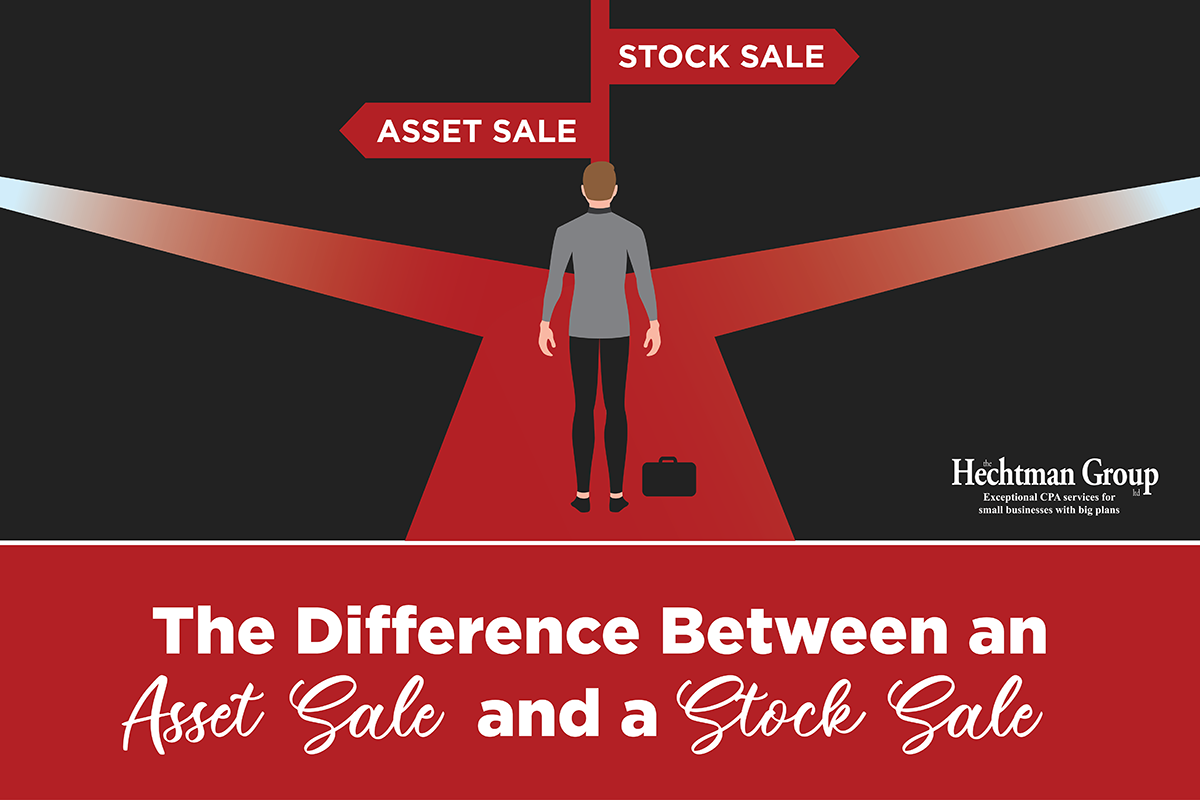Choosing the wrong one can have major tax implications
When approaching a potential business entity transaction, there are different ways to structure the sale. Chiefly, stakeholders are presented with the option to construct it as either a stock sale or an asset sale. Within this article, we break down what each means, the tax implications, and conclude with an explanation of when one might benefit you more than the other.
What is an asset sale?
An asset sale is the purchase of specific, individual assets within the entity, such as licenses, equipment, inventory, and more. By structuring the transaction this way, the seller legally holds onto possession of the entity, maintaining responsibility for the long-term debt liabilities.
Since this type of transaction generally involves the transfer of existing assets, they do not include cash. As a result, this is most commonly referred to as a cash-free and debt-free transaction.
Depending on the status of the entity you are purchasing, such as if it is a C or S corporation, there are relatively higher tax rates when compared with stock sales for sellers. While many intangible assets acquired during these transactions, such as goodwill, are designated as capital gains, other tangible assets are subject to ordinary income tax rates. It is crucial to consult with your tax advisor when contemplating a purchase of a C, S, or any other kind of corporation.
Asset sales also allow buyers to maximize the company’s depreciable basis in its assets. In other words, by allocating a higher value for assets that have a quicker depreciation timeline and lower value for assets that depreciate slower, the buyer can enjoy additional tax benefits. Note that the buyer and seller must agree on the allocation of assets reported for tax purposes.
What is a stock sale?
A stock sale occurs when the buyer directly purchases the selling entity’s stock, assuming legal ownership over the entity. The actual assets and liabilities obtained in a stock sale very much resemble those received in an asset sale.
Due to the fact that all the assets and liabilities acquired in a stock sale lie within the corporation, once the buyer purchases the stock of the corporation they receive legal ownership of all the assets tied to the entity.
All the gain proceeds from this transaction on the side of the seller are taxed at a lower capital gains rate, and the corporate level taxes for C corporations are avoided.
When is one more beneficial than the other?
Typically, buyers tend to favor asset sales, whereas sellers most commonly gravitate towards structuring these transactions as a stock sale. The first and foremost reason for this are the tax benefits previously discussed as well as the power of purchase price allocation when it comes to tax savings. However, there are numerous other factors that come into play.
In a stock sale, all risks and liabilities are transferred over to the buyer. Asset sales, on the other hand, allow buyers to pick and choose the assets and the liabilities tethered to those assets, potentially mitigating further risk. However, stock sales are generally a smoother experience and do not require the reassignment of licenses, contracts, permits etc.
While there are common trends, there is no cut and dry answer and it depends on your long-term business goals. It is important to consult with legal, financial, and tax advisors before initiating the purchase of any entity.
Next Steps
Are you preparing to purchase a business or company but are not sure which option is right for you? Want to consult with an industry-leading firm with decades of experience under their belt? Contact us today to hear from experts about how you can minimize your taxes and maximize your gains.
At The Hechtman Group LLC, we understand that tax laws and regulatory and IRS requirements for mergers and acquisitions are vastly different from other financial services. Rich in industry experience, our CPAs and accountants can guide you through all the necessary steps while also creating best practice opportunities for long-term growth.
The Hechtman Group LLC specializes in accounting, tax and business consulting services for individuals, small business owners, and entrepreneurs, with expertise in real estate accounting.
